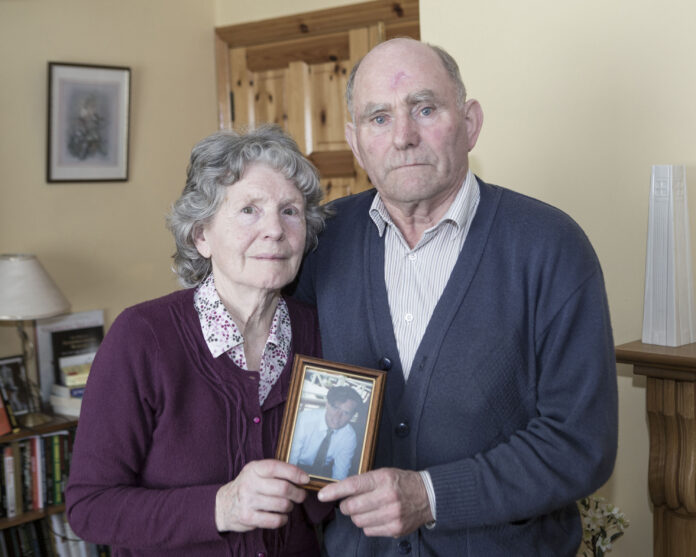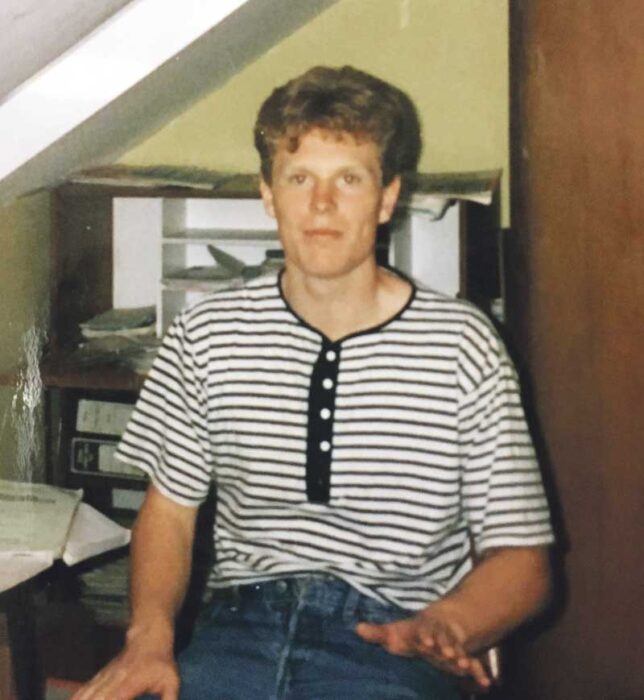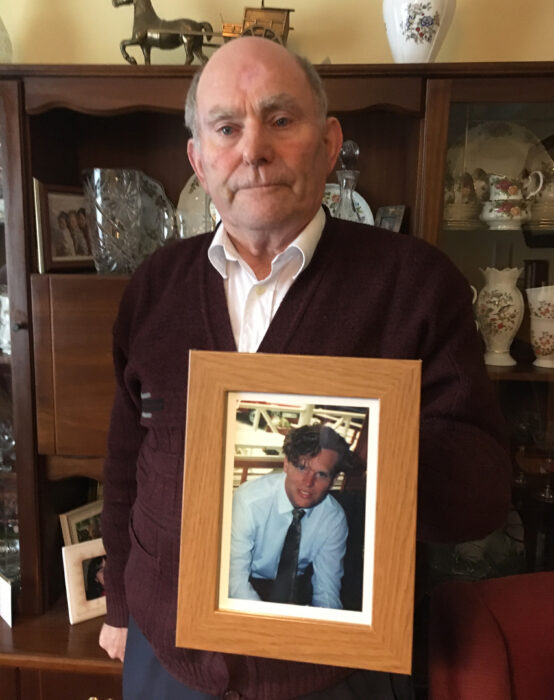
GARDAÍ have refused to hand over a file on the 1996 disappearance and subsequent discovery of the remains of Denis Walsh Jnr to his father, Denis Walsh Snr, who is suing the State over what he says were serious shortfalls in how Gardaí handled the case.
In another tragic twist to the 26-year investigation, Denis Walsh Snr (83) spoke publicly for the first time about a letter that was delivered to his home in Caherdavin last year claiming his son was murdered by a man in Limerick.
Denis Walsh Snr said that he requested a copy of the Garda file through his solicitor relating to his son’s disappearance and the subsequent discovery of his partial remains on April 7, 1996.
However, Gardaí said they could not release information about his son because he was dead and so was not in a position to agree to the disclosure.
Denis Walsh Jnr went missing on March 10, 1996. For 25 years his family were unaware that his unidentified partial body was discovered on Inis Mór, 28 days later. It was stored in a mortuary for 18 years and eventually buried in a communal grave in 2014.
The remains were eventually identified in February 2022 and exhumed by the Walsh family before being laid to rest in Limerick in April last year.
In response to Mr Walsh Snr’s request for the Garda file on his dead son, Gardaí stated: “As a general principle, the personal data of any individual is never disclosed to a third party, in the absence of the consent of the individual concerned to its disclosure”.
The letter sent from the Garda Data Protection Unit said the file could not be divulged “regardless of the relationship of the requester to the person in respect of whom such data is being sought”.
It continued, “any rights accruing to individuals under data protection legislation only applies to data relating to living persons and unfortunately does not apply to personal data of persons who are deceased, therefore I regret that this office is not in a position to provide you with personal data”.
The Garda unit said that such requests can be considered on a “case by case basis” but Gardaí would have to “ensure no potential harm arises from the inappropriate disclosure of such information”.

Mr Walsh Snr described the letter as “disgusting and insulting”.
“I mean to say, they have treated me and my family disgracefully over the years, and now this. They can’t give me information about my son because he is dead.”
Mr Walsh said there were “outstanding questions” about why his son’s remains were not identified sooner.
“I want answers, myself and my wife were in Galway the day before his body was found there. We handed out flyers with Denis’ photo on them at Garda stations all over Galway, so why didn’t any of them join up the dots”.
Gardaí stated in 2021 that “foul pay was not suspected” following a post mortem in 1996.
An internal Garda memo dated April 11, 2021, stated that a Garda at the scene had given a statement saying that both arms and hands were attached to the torso but that due to composition “fingerprinting was not an option” and there were “no teeth present” in the partial skull.
Samples taken from the body during the autopsy and sent to the Forensic Science Laboratory were examined in July 2008, 2011, and 2017, but could not be matched, Gardaí said.
Saliva swabs were taken by Gardaí from Denis and Mary Walsh in February 2011 but a match was not found until February 2022.
Gardaí said identification came about because of advances in DNA technology.
While one Garda at the scene stated there was two arms and two hands, another Garda at the scene stated “one arm”.
Both Gardaí stated there was a partial skull however the “clear recollection” of a doctor at the scene was that there was a “torso with no head attached”.
The autopsy report stated there was a “torso including portion of skull with skull bones” and that “the hair colouring is brown and appears graying”.
Press cuttings about the grim discovery of a man with “neatly cut brown hair” appeared in the media a few days after the remains were found.
Mr Walsh Snr said he was “shocked” when a letter delivered to his house in May 2021 claimed his dead son had been murdered by a man in Limerick City.
Mr Walsh said he handed in the letter to Gardaí at Henry Street and he has not heard anything from Gardai about it since.
The letter identifies a person that the author alleges murdered Denis Walsh Jnr.
When asked about this letter, a Garda spokesman said that Gardaí were continuing “an active Missing Persons investigation into this case”.
At Denis Walsh’s inquest in April 2022, Galway West Coroner Dr Ciaran MacLoughlin said that a review of DNA profiles of unidentified remains held in Galway in 2011 did not include Mr Walsh’s remains, which he agreed was “an opportunity missed to identify the remains”.
Dr MacLouhglin, who recorded an open verdict, said Mr Walsh’s remains were “missed” in the DNA review, and he stated that the 25-year delay in identifying Denis Jnr’s remains had “compounded” his family’s trauma and grief.
Denis Walsh Snr said that in his opinion there was a “complete breakdown of communication” within the Gardaí in relation to the discovery of his son’s remains.
He claimed Gardaí were at times insensitive and unhelpful as he and his wife and remaining children searched for Denis Jnr.
He told the inquest that a senior Garda in Limerick contacted his wife at one point telling her he thought that Denis’s body had been found in Limerick, when in fact no body had been found.
Part of the original Garda file into the discovery of the remains are believed to have been lost in a fire at a Garda station in Galway some years ago.
A letter sent to the Walsh family from Gardaí in February 2021 acknowledged the family had been left with “lots of justifiable questions on how it took so long to identify Denis”.



